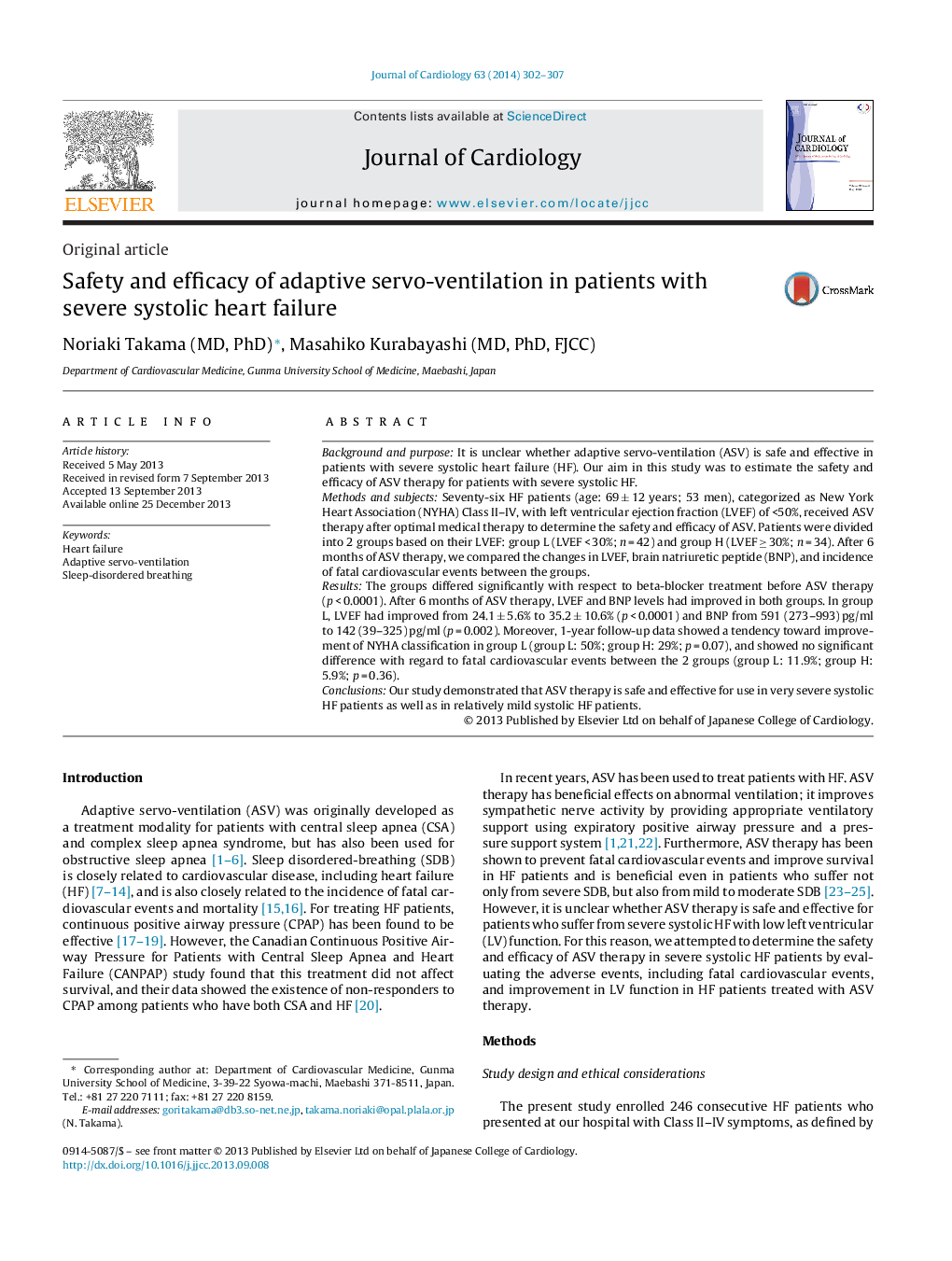| Article ID | Journal | Published Year | Pages | File Type |
|---|---|---|---|---|
| 5984053 | Journal of Cardiology | 2014 | 6 Pages |
Background and purposeIt is unclear whether adaptive servo-ventilation (ASV) is safe and effective in patients with severe systolic heart failure (HF). Our aim in this study was to estimate the safety and efficacy of ASV therapy for patients with severe systolic HF.Methods and subjectsSeventy-six HF patients (age: 69 ± 12 years; 53 men), categorized as New York Heart Association (NYHA) Class II-IV, with left ventricular ejection fraction (LVEF) of <50%, received ASV therapy after optimal medical therapy to determine the safety and efficacy of ASV. Patients were divided into 2 groups based on their LVEF: group L (LVEF < 30%; n = 42) and group H (LVEF â¥Â 30%; n = 34). After 6 months of ASV therapy, we compared the changes in LVEF, brain natriuretic peptide (BNP), and incidence of fatal cardiovascular events between the groups.ResultsThe groups differed significantly with respect to beta-blocker treatment before ASV therapy (p < 0.0001). After 6 months of ASV therapy, LVEF and BNP levels had improved in both groups. In group L, LVEF had improved from 24.1 ± 5.6% to 35.2 ± 10.6% (p < 0.0001) and BNP from 591 (273-993) pg/ml to 142 (39-325) pg/ml (p = 0.002). Moreover, 1-year follow-up data showed a tendency toward improvement of NYHA classification in group L (group L: 50%; group H: 29%; p = 0.07), and showed no significant difference with regard to fatal cardiovascular events between the 2 groups (group L: 11.9%; group H: 5.9%; p = 0.36).ConclusionsOur study demonstrated that ASV therapy is safe and effective for use in very severe systolic HF patients as well as in relatively mild systolic HF patients.
